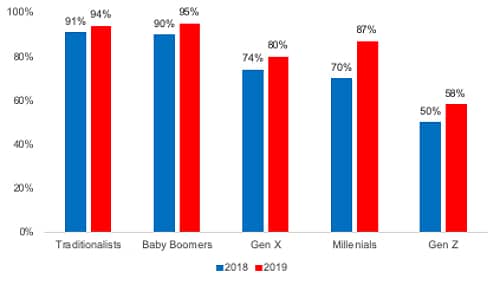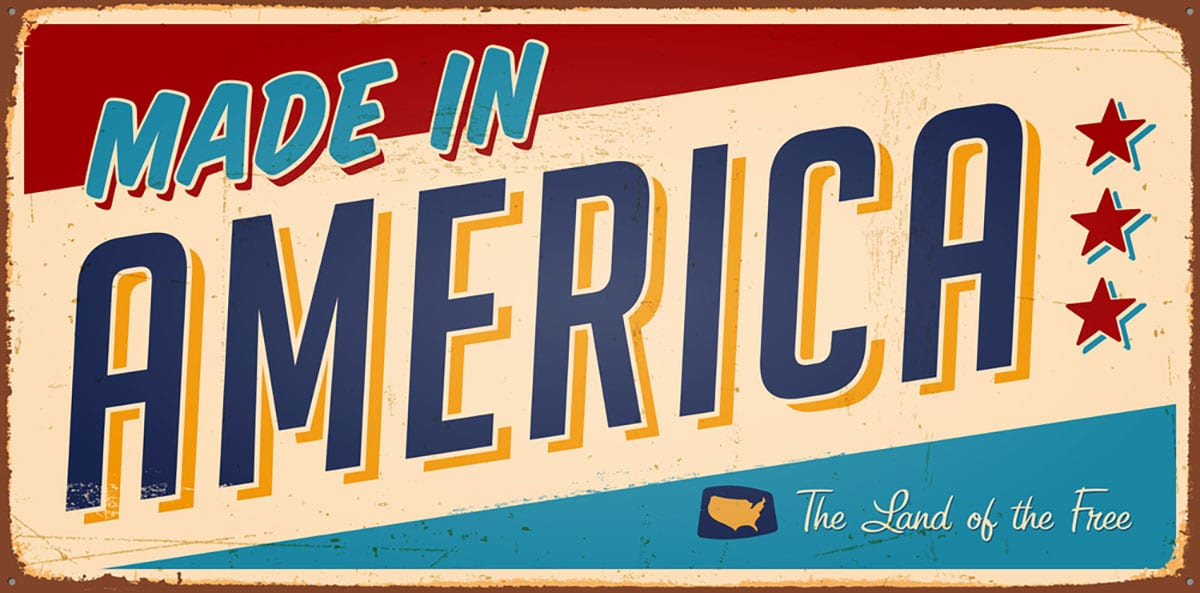The 17th annual Brand Keys survey of iconic American brands across 115 categories has again identified the brands American consumers feel best embody the value of “patriotism”.
There is no shortage of challenges facing brands today. But increasingly one of the more fundamental challenges is what it means to be considered patriotic and how best to express patriotism via brand values and marketing. Brands always have to compete within category frameworks. And they had to work hard to keep customers loyal. If you can link your brand to a value as powerful as “patriotism”, you’re virtually guaranteed the kind of loyalty that such a value engenders.
Why look at that particular value? After 9/11 brands felt an obligation to jump on the patriotism bandwagon. Some did it more successfully than others. Some shouldn’t have done it, no matter how well-meaning they thought it was. After that we began measuring brands’ capacities to successfully leverage that particular value.
But that was then.
Seventeen years later brands still face category challenges and loyalty challenges, but now they must also address socio-political challenges as well. It’s the new, new-normal. And the challenge is to recognize that “patriotism” isn’t just about ad campaigns and marketing surrounded by flags and fireworks. The new challenge is to build a brand where customers recognize a steady dedication of a brand’s state and stature among its competitors as regards the value of “patriotism”.
It was 1964 when Supreme Court Justice Potter Stewart, unsure as to how to define what was “obscenity”, noted, “. . . I know it when I see it”. “Patriotism” is in much the same situation. It’s visceral and emotional and is something that is more easily felt than measured – or articulated. Which is why Brand Keys relies on an independently validated technique that combines psychological inquiry and some rational higher-order statistical analyses to locate, identify, and quantify individual values that define brands.
Also Read: What are Your Customers Loyal To?
A national sample of 5,862 consumers, 18 to 68 years of age, balanced for gender and political party affiliation, drawn from the nine U.S. Census Regions, evaluated brands for how resonant they were for the value of “patriotism”. Based upon this psychologically-based emotional engagement survey of how people “feel” about the degree to which the brands embodied “patriotism”, here are a few of the brands that led the 2019 Patriotism Parade:
Jeep: The vehicle that won World War II. And, apparently, every war since. It’s become an intrinsic part of every war movie ever produced. It embodies the essence of victory. It radiates patriotism. And the brand doesn’t have to say a word.
Walt Disney: Is there anyone more associated with the vision of patriotic small-town America? Main Street, Liberty Square, and the Hall of Presidents. Patriotism personified.
Coca-Cola: The iconic bottle has come to stand for the freedom to create and the drink itself has become emblematic of the American way-of-life.
Levi Strauss: The brand (and person) who created the archetypical American blue jeans.
The Brand Keys annual survey focuses on for-profit brands, but assessments for the armed services – Coast Guard, Air Force, Army, Marines, and Navy – are included. This year, again, consumers of all ages and political persuasions gave the armed services a patriotic ranking of #1. We recognize that again this year and thank them for their service.
Other leaders of patriotic brands included Ford, Hershey, AT&T, Ralph Lauren, MSNBC, FOX, Instagram, Craftsmen Tools, and Harley-Davidson. A complete top-50 ranking (54 brands in total, accounting for ties) best meeting the challenge patriotism plays in our politically complex marketplace and can be found here.
We now live in an era of political polarization, consumer tribalism, and increasingly fervent social movements that challenge brands with constantly shifting sector landscapes. That requires ongoing adaptation and reinvention for brands.
Not only are the basic tenets of consumer loyalty and brand engagement being upended, but also the need for brands to define themselves as to what it means to be patriotic because consumers’ patriotic self-perceptions have increased across all age groups Y-O-Y. Percentages for top two-box ratings (“Extremely” or “Very” Patriotic) follow and were consistent across genders and political affiliations within the individual age cohorts.

The increased levels of consumers’ self-perceptions of being patriotic correlates very highly with the appearance of more media brands – both right and left – on the annual list.
Coincidence? We don’t think so. Perhaps it’s evidence that people are just paying more attention. Or developing a different level of loyalty to brand doctrine that has transformed over the past 17 years. Whatever the causality, brands had better pay more attention too because it is going to affect engagement and loyalty levels big time.
What’s been independently validated over and over is where a brand can establish emotional connections with a value as powerful as “patriotism”, consumers will engage more strongly, are willing to believe more about the brand, and behave more positively toward the brand.
In most cases six times more.
These brand rankings do not mean that other brands are not patriotic or don’t possess patriotic resonance.
Rational values, like being an American company, being ‘Made in the USA’, or having nationally directed CSR, all play a part in the perception of any brand. But politics is now making itself felt more in the brandscape than ever. Particularly as to how consumers view themselves and their brands-of-choice through a category, political, and patriotic lens.
Brands that can make meaningful emotional connections with consumers always have a strategic advantage when it comes to winning the hearts, minds, wallets, and loyalty of consumers. Do that and consumers don’t only stand up and salute, they stand up and buy!
Robert Passikoff is founder and CEO of Brand Keys and is a frequent contributor to The Wise Marketer on topics of brand loyalty and measurement.


